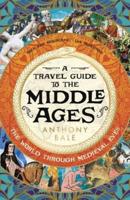Publisher's Synopsis
During the early 20th century, Macedonia's neighbors were vying to dismember Macedonia from Turkey and attach the province to their expanding empires. To accomplish this, Bulgaria, Greece and Serbia instituted propaganda campaigns utilizing priests, teachers, and armed bands to convince the Macedonians that they were really Bulgarian, Greek or Serbian. When Westerners arrived, they encountered a people who had been subjected to varying degrees of propaganda and abuse. They struggled to understand why and how the Macedonians were being defined and labeled in certain ways, and they endeavored to paint an accurate picture of the Macedonian situation. Many of these visitors published books about their experiences and observations, which usually differed from the narratives espoused by Macedonia's carnivorous neighbors. Still, modern-day Balkan chauvinists use out-of-context snippets from these Westerners' works to support their claims that the Macedonian ethnic identity is a modern creation. Sinadinoski explores these Western books in their entirety to demonstrate that the vast majority of impartial and objective visitors to Macedonia indeed considered the Macedonians to be a separate people, while acknowledging that extensive propaganda had managed to group Macedonians into different political camps. These camps, however, were not attestations to racial, national or ethnic identity, but merely shifting loyalties resulting from decades of indoctrination campaigns.






